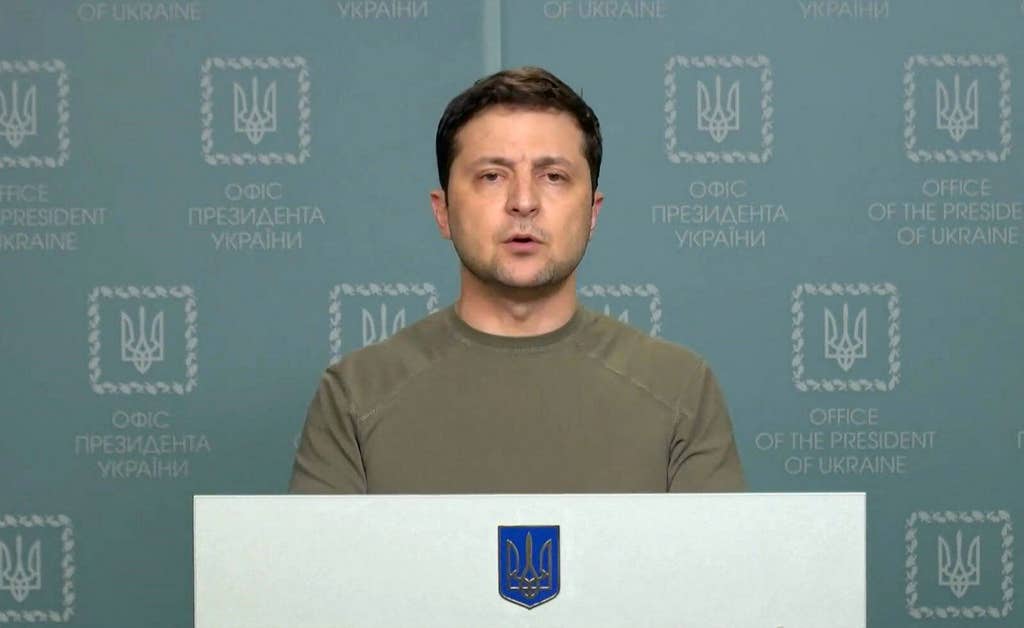While the war rages on and EU stands behind Ukraine against Russia’s invasion and has imposed packages of sanctions, it has not yet decided to stop importing Russian fossil fuels which continues to finance its war machine.
As previously reported, the issue was not on the agenda of last week’s European Council meeting. EU continues to consider more sanctions but only if “needed”. EU sanctions must be decided by unanimity by all EU member states. It is no secret that some member states that are more dependent on Russian natural gas oppose sanctions. However, member states can widen the sanctions and decide on their own sanctions.
Joint EU-US statement
The US has decided to stop importing fossil fuels from Russia but there was no reference to it in the joint EU-US statement on European Energy Security. According to senior Commission officials at a technical briefing for journalists on Friday, the agreement provides a political framework for private investors in the energy market.
The EU has some tough challenges ahead. It needs to secure its energy supply in the short term until next winter, gradually reduce its dependence on Russian natural gas, and ensure a stable energy demand in the member states. At the same time, it needs not to give up on its ambitious goals in the European Green Deal and accelerate the transition to green and renewable energy.
The joint statement outlines partly how this will happen. The US will strive to ensure, including working with international partners, additional liquified natural gas (LNG) volumes for the EU market of at least 15 bcm in 2022 with expected increases going forward.
The European Commission will work with EU Member States and market operators to pool demand through a newly established EU Energy platform for additional volumes between April and October 2022.
The European Commission will work with EU Member States toward ensuring stable demand for additional US LNG until at least 2030 of approximately 50 bcm per year. This is about one third of the current annual total import from Russia.
The European Commission has proposed regulation on energy storage to ensure that the existing storage infrastructure is filled up to 90% of its capacity by 1 November each year, with specific phase-in provisions for 2022. According to a Commission official, the goal this November is 80 %.
Has the Commission analysed if the EU can manage without Russian natural gas until next winter by reducing demand and replacing it by import from other countries?
A Commission spokesperson did not address the question directly but referred to the so-called REPowerEU communication last week. “The idea is indeed to reduce our dependency on Russian gas, oil and coal, among others things by diversifying our supplies and imports. REPowerEU offers a list of steps in that direction.”
Are sanctions against import of Russian natural gas possible now? If the EU continues to import it, is it possible to put the payment for it an escrow account until the war is over?
The spokesperson replied that the issue of new sanctions was not discussed during at the technical briefing. “The purpose of this briefing was to explain the EU-US agreement on additional LNG gas imports to the EU from the US.”
He declined to comment on possible new sanctions. “We have taken several packages of sanctions, but we never comment on potential new sanctions until the moment such sanctions are adopted.”
New sanctions?
In the meantime, both Ukraine and some member states are calling for new sanctions. “Europe must stop buying oil from Putin”, Oleg Ustenko, chief economic advisor to Ukraine’s president Zelensky and member of his International Economic Response Group, wrote in an op-ed (New York Times, 25 March).
He explained that natural gas is the third most valuable Russian export product and that Europe is its most important customer. Europe has paid more than $19 billion since the start of the Russian invasion on 24 February for natural gas and petroleum products.
Europe has already enough gas to get to next winter, according to Ustenko. The best way to stop Russia’s war machine is to cut off its daily inflow of hard currency. Payments for Russian gas should go into escrow accounts so that the proceeds cannot be used to buy weapons.
“At the heart of the war machine is oil and gas,” wrote Kaja Kallas, prime minister of Estonia, in another op-ed. “Last year exports from hydrocarbons amounted to roughly 40 % of the Russian state budget. Our focus must be on drying up these revenues.”
She proposed to put some of the payments for Moscow’s oil and gas in a special third-party account “so that the revenue does not go toward financing the war” and added that a significant share of these funds should be directed for a future reconstruction plan for Ukraine.
M. Apelblat
The Brussels Times

